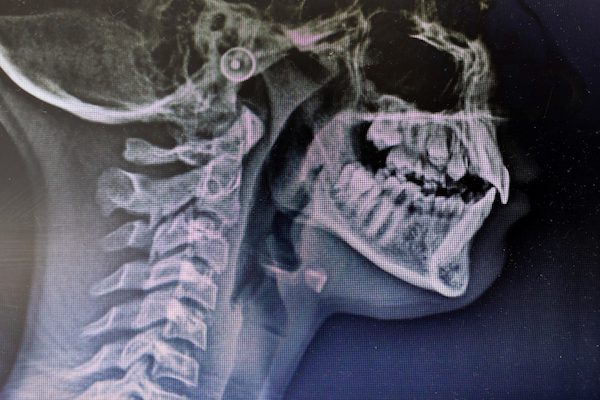TMJ Treatment
TMJ Disorders – Diagnosis and Treatment

TMJ Treatment Campbelltown
TMJ disorder, often known as Temporomandibular joint/TMD, is a type of jaw pain that several different medical conditions can bring.
Head, neck, facial, and ear pain can be brought on by TMJ issues.
Additionally, one may encounter biting issues, a jaw locked in place or difficult to release, and clicking or popping sounds in the jaw.
Symptoms of TMJ Disorders
- Difficulty or pain while chewing
- Facial pain
- Jaw joint locking, having trouble opening or closing your mouth
- Pain in and around your ear
- Pain or tenderness in one or both jaws
TMJ issues might make your jaw click or grate when opening your mouth or chewing.
You generally won’t need TMJ therapy if your jaw clicking is not accompanied by pain or mobility restrictions.

Causes of TMJ Disorder
These are some of the causes of TMJ disorders:
- Dislocation of the jaw
- Injuries to the face
- Teeth grinding and stress
- Improper tooth and jaw alignment
- Arthritis
Treatment for TMJ Problems
The primary factors of TMD treatment are the underlying causes of the disorder. Treatment options might range from simple dental work to complicated surgery, depending on the serious issue.
Before beginning any treatment, a comprehensive diagnostic is made.
This may call for specialised diagnostic tools that evaluate your lower jaw’s alignment and the location of your teeth, as well as the Temporomandibular Joint’s performance.
You might also need an X-ray, an MRI, a CT scan, and a plaster replica of your teeth.
We will create a treatment strategy for you after we’ve determined that TMD is the cause of your symptoms. For instance, we may cure the disease without requiring surgery to alter your teeth, jaw, or joints by using conservative, reversible therapy.
The following are some possible TMJ treatments.
Prescription
Apply moist heat to relieve muscle spasms and pain, or take a prescription like aspirin, muscle relaxants, or other over-the-counter pain relievers or anti-inflammatory treatments.
Wear protective appliances
Using a protective nightguard or splint lessens the harmful effects of teeth clenching and grinding.
Relax
Controlling jaw muscle tension may be possible using relaxation techniques. Your dentist in Campbelltown might advise you to get counselling or training to reduce stress.
TMJ Treatment in Campbelltown
Don’t hesitate to contact your Campbelltown dentist if you experience any of the symptoms above or believe you may have TMJ disorders.
At Marketfair Dental Care, we treat all our patients as we would our families by using the most appropriate and cost-effective solutions.
Visit your Campbelltown dentist today!
For TMJ treatment in Campbelltown, call (02) 4620 0800 or make an appointment online.
We are located at Marketfair Campbelltown Shop 21B, 4 Tindall St in Campbelltown.
FREQUENTLY ASKED QUESTIONS
What is the difference between TMJ and TMD?
TMJ is the temporomandibular joint, which connects the lower jaw to the skull.
TMD, or Temporomandibular Disorders, occurs when the temporomandibular joint is afflicted by issues that cause discomfort or pain.
What does TMJ pain feel like?
A hurting jaw commonly characterises TMJ pain, but you may also have severe or throbbing neck pain, ear pain, face pain, jaw pain, throat pain, or unexplained headaches.
TMJ disorders can cause symptoms comparable to lockjaw, making it difficult to speak or chew.
Is there a way to prevent TMJ disorders?
- Massage the muscles in your jaw, cheekbones, and temples frequently.
- Avoid chewing gum or biting on rough items like pens or fingernails if you occasionally get jaw pain.
- Eat soft, mushy foods instead. When yawning, hold your lower jaw in place with one hand.
- When eating, take smaller bites.
- Maintain a supportive neck position as you sleep.
- Apply moist heat if you feel spasms.
- When taking calls, avoid placing your phone between your shoulder and neck.
- Consult your Campbelltown dentist if you often clench your jaw or grind your teeth at night.
